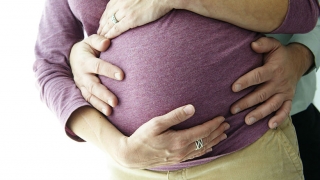Recognizing Symptoms of Depression and Anxiety After a Loss
Taking care of yourself is important when experiencing a loss. This information can help you understand some of the thoughts and emotions you might experience, and where to turn for help if you need it.
What is depression?
Depression is a mood disorder that can be described as feeling sad, unhappy or having a loss of interest in daily activities. Depression can affect how you feel, act or even think, which can cause you to have trouble doing normal day-to-day activities. Some things you might experience or notice if you are depressed include:
- Constant feelings of sadness and crying
- Difficulty concentrating
- Loss of interest or pleasure in things you used to enjoy
- Avoidance of daily activities
- Feelings of guilt, shame or hopelessness
- Trouble falling asleep or sleeping too much
- Change in appetite (overeating or not having an appetite)
- Lack of energy
- Thoughts of harming yourself or others
What is anxiety?
Anxiety is an emotion that everyone faces at different points in life. However, anxiety can be a more serious concern when a feeling of worry, nervousness or unease about a specific event, person or outcome causes such distress that you have difficulty functioning in your day-to-day life. Some things you might experience or notice if you are struggling with anxiety include:
- Frequent worry
- Feelings of fear or uneasiness
- Racing thoughts that cannot be stopped
- Heart pounding or “fluttering”
- Feeling like you can’t catch your breath
As you are working through the various stages of grief, you may find yourself struggling with symptoms of depression and/or anxiety from time to time. These thoughts, feelings and behaviors are quite common as you grieve. However, if you notice that you are still having many more difficult days several months after the birth, or long periods of time spent feeling depressed or anxious and feel like you are getting worse as time passes, then it may be time to seek out professional help (see “How to Seek Out Mental Health Treatment” resource page).
If there is ever a time when you begin to feel unsafe or have thoughts of hurting yourself or someone else, it is important that you seek help immediately. Bring yourself to your doctor’s office or local emergency department, calling 911 for assistance if needed. The number for the anonymous National Suicide Prevention Lifeline is 988.

